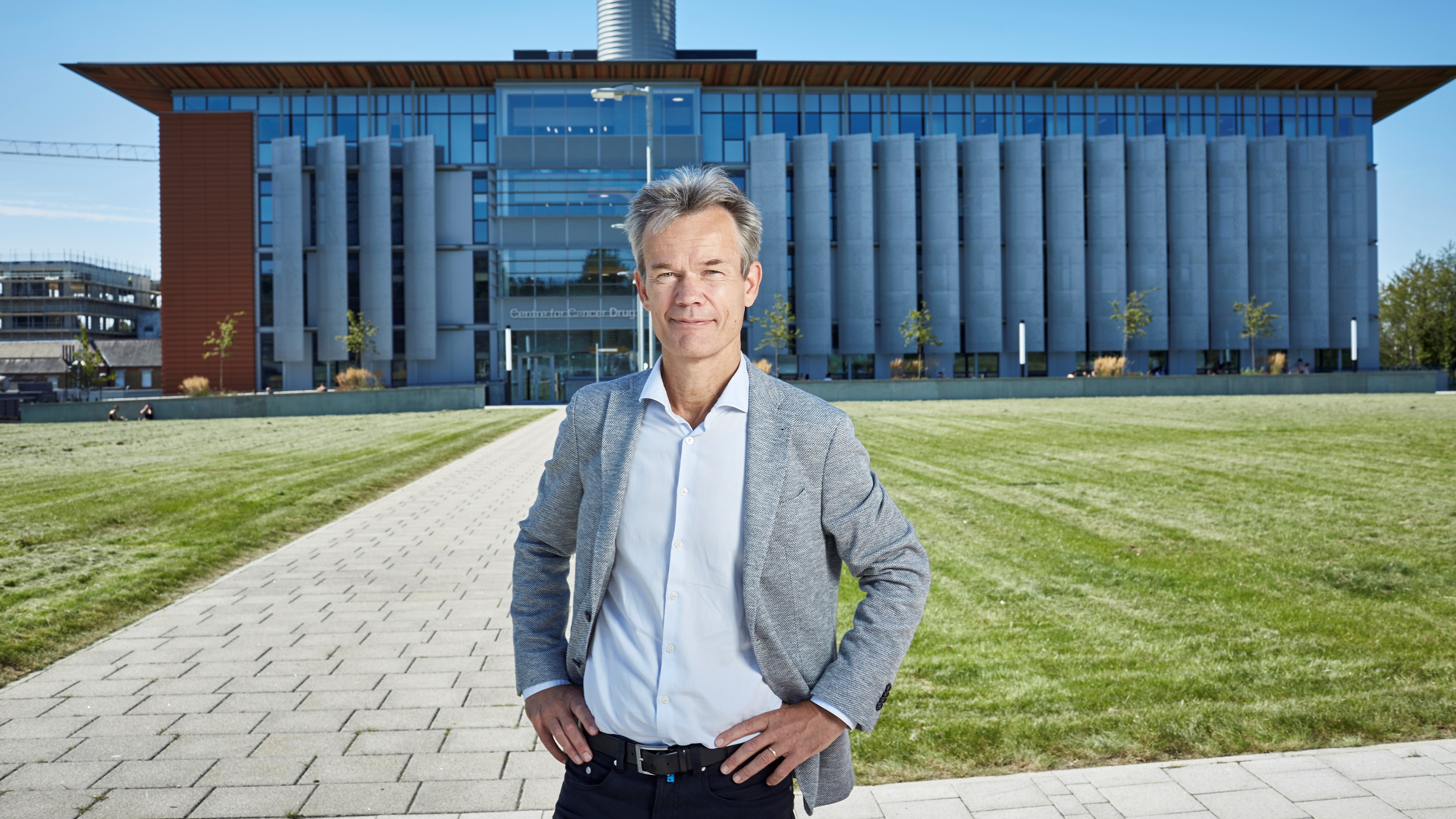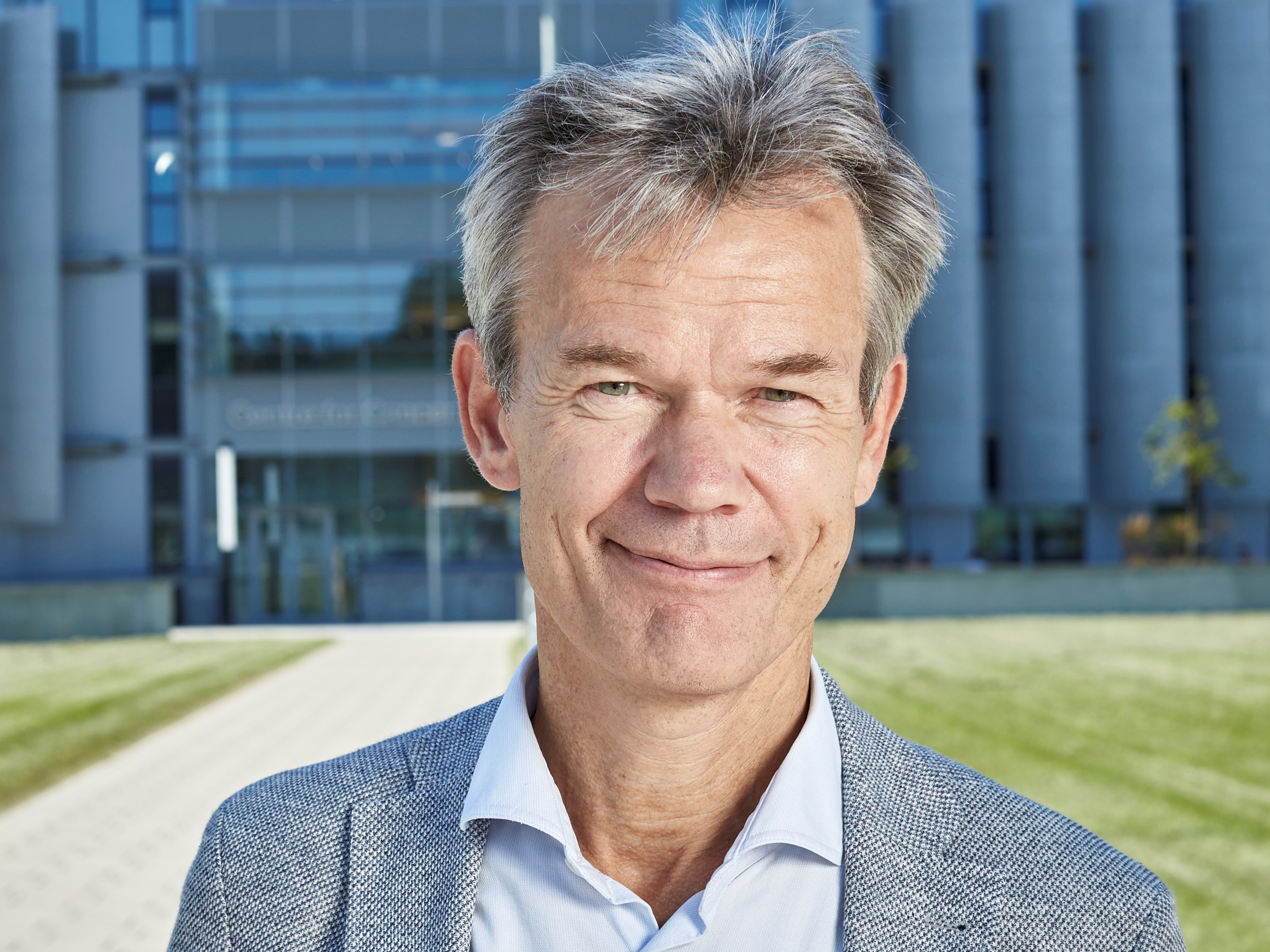 Professor Kristian Helin, a world-leading cancer researcher and Chief Executive of The Institute of Cancer Research, London, has been elected as a Foreign Member of the Royal Society in recognition of his outstanding contribution to cancer research.
Professor Kristian Helin, a world-leading cancer researcher and Chief Executive of The Institute of Cancer Research, London, has been elected as a Foreign Member of the Royal Society in recognition of his outstanding contribution to cancer research.
Election to the Royal Society Fellowship is one of the highest accolades in UK science and candidates must have made 'a substantial contribution to the improvement of natural knowledge, including mathematics, engineering science and medical science'.
Professor Helin has pioneered key fundamental discoveries that have improved our understanding of how changes to the way the DNA code is read and translated into proteins can lead to cancer.
The ICR now has seven Fellows and Foreign Members of the Royal Society among current staff – Professor Paul Workman, former Chief Executive of the ICR, Professor Jon Pines, Head of Cancer Biology, Professor Mel Greaves, Founding Director of the Centre for Evolution and Cancer, Professor Laurence Pearl, Head of Structural Biology, Professor Terry Rabbitts, Professor of Molecular Immunology, and Professor Richard Houlston, Head of Genetics and Epidemiology.
Professor Peter Rigby, the ICR's Professor Emeritus of Developmental Biology, is also a Fellow.
Cancer and epigenetics
Professor Helin has made several seminal discoveries in the field of cell cycle control, epigenetics, and cancer.
He isolated the first member of the E2F transcription factor family and later showed the importance of the E2Fs as targets for the retinoblastoma family and the regulation of cell cycle progression and differentiation.
Professor Helin’s work led to the discovery that JmjC-domain containing proteins are histone demethylases, a seminal discovery that has wide impact on our understanding of gene expression, development, and disease. His many additional contributions include pioneering work on histone and DNA methylation and their role in gene expression and cancer.
Professor Helin joined the ICR as Chief Executive in September 2021 from Memorial Sloan Kettering Cancer Center in the US. He previously spent 15 years as Director of BRIC – a major biotech and innovation institute at the University of Copenhagen. He was also a Unit and Division Director at the European Institute of Oncology in Milan.
Outstanding contributions to cancer research
Professor Kristian Helin, Chief Executive of the ICR, said: "It’s a great honour to be recognised by the Fellowship of the Royal Society. Throughout my career I have had a passion for fundamental research that helps us understand how things work. And I have been fortunate to work with many fantastic people in four different countries, who have helped contribute to the science that has helped lead to this honour.
“I look forward to joining such a distinguished group of scientists and hope it will lead to new collaborations that advance my work and that of the ICR, to help people with cancer."
Professor Julia Buckingham CBE, Chair of the ICR, said: “Kristian has made outstanding contributions to cancer research over several decades and continues to improve our understanding of the biology of cancer to advance new treatments for the disease. The ICR has a long history of researchers being honoured with Fellowships from the Royal Society, reflecting the high calibre of the science the Institute does to benefit people with cancer. I am delighted that Kristian has been elected to join them.”
A broader and more engaged Fellowship
This year the Fellowship elected 59 Fellows, 19 Foreign Members and two Honorary Fellows – an increase from previous years after changes introduced in 2023 increased the maximum number who can be elected by the existing Fellowship.
The increase aims to help create a broader and more engaged Fellowship and support the Society’s mission of championing excellence in research and science for the benefit of humanity. There are around 1,700 Fellows and Foreign Members in total.
Sir Adrian Smith, President of the Royal Society said: “I am delighted to welcome our newest cohort of Fellows.
“These individuals have pushed forward the boundaries of their respective fields and had a beneficial influence on the world beyond.
“Among this year’s intake are individuals who were at the forefront of the response to the Covid-19 pandemic response, and those working on global challenges, from TB to climate change. They are pioneering scientists and innovators from around the world who have confounded expectations and transformed our thinking.
“This year’s intake has already achieved incredible things, and I have no doubt that they will continue to do so. I look forward to meeting them and following their contributions in future.”
